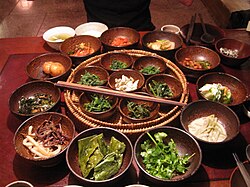**Global Vegetarianism Overview:**
– Vegetarian and vegan dietary practices vary worldwide.
– Some countries have strong cultural or religious traditions supporting vegetarianism.
– Food labeling laws in many countries aid vegetarians in identifying suitable foods.
– The concept of vegetarianism dates back to Pythagoras in 500 BCE.
– Google searches for vegan food surged in 2021, indicating increasing popularity.
**Statistics on Vegetarianism by Country:**
– Argentina, Australia, and Israel have notable percentages of vegetarians.
– Japan, Italy, and the UK also have significant vegetarian populations.
– The US and Vietnam have sizeable vegetarian communities.
– Africa/Middle East has the second-highest vegetarian region after Asia.
– The Asia-Pacific region boasts the highest share of vegetarians and vegans.
**Regional Vegetarianism Insights:**
– The Africa/Middle East region has a substantial vegetarian and vegan presence.
– Ethiopian and Egyptian cuisines feature vegan dishes due to religious fasting.
– Mauritius, with a Hindu majority, offers widespread vegetarian options.
– North African countries have a tradition of vegetarian cooking.
– Hindu and Jain immigrants from India have influenced vegetarianism in some countries.
**Asian Vegetarianism Focus:**
– China has a growing number of young vegans in urban areas.
– Chinese folk religion and Buddhism have influenced vegetarianism in China.
– Japan has a history of vegetarianism influenced by Buddhism.
– Japanese shōjin ryōri is a type of meal with religious roots.
– Vegetarianism in Japan has seen a resurgence among the middle class.
**Specific Country Insights:**
– India:
– Vegetarianism has deep roots in ancient Indian culture.
– Indians historically have low meat consumption rates.
– Indian cuisine typically follows lacto-vegetarian principles.
– Various types of vegetarian restaurants cater to different dietary preferences.
– South Korea:
– Vegetarianism in South Korea has seen significant growth.
– Plant-based meat alternatives like Beyond Meat have gained popularity.
– Korean grocery stores have introduced meat alternatives to meet the demand.
– Taiwan:
– Taiwan has over 6,000 vegetarian eating establishments.
– The country has strict food labeling laws for vegetarian products.
– Government bodies in Taiwan support vegetarian initiatives.
– Japan (shōjin ryōri):
– Japanese Buddhist cuisine, known as shōjin ryōri, emphasizes vegetarian meals.
– Shōjin ryōri is a traditional and integral part of Japanese culture.
Vegetarian and vegan dietary practices vary among countries. Differences include food standards, laws, and general cultural attitudes toward vegetarian diets.


In some instances, vegetarians that choose to abstain from dairy may be labeled as vegan. However, veganism typically refers to abstaining from any act that may directly or indirectly injure any sentient being, thus typically requiring the exclusion of eggs and honey, along with dairy, as well as further non-dietary exclusions such as the purchase of wool, silk and leather and places where animals are being kept like zoos and circuses.
The concept of vegetarianism to indicate 'vegetarian diet' is first mentioned by the Greek philosopher and mathematician Pythagoras of Samos around 500 BCE. Followers of several religions such as Buddhism, Hinduism, and Jainism have also advocated vegetarianism, believing that humans should not inflict pain on other animals.
Some countries have strong cultural or religious traditions that promote vegetarianism, such as India, while other countries have secular ethical concerns, including animal rights, environmental protection, and health concerns. In many countries, food labeling laws make it easier for vegetarians to identify foods compatible with their diets.
In January 2022, Google revealed that searches for "vegan food near me" had dramatically increased in 2021. The term achieved "breakthrough status", meaning it increased by 5,000 percent or more indicating the rising popularity of vegan diets.
